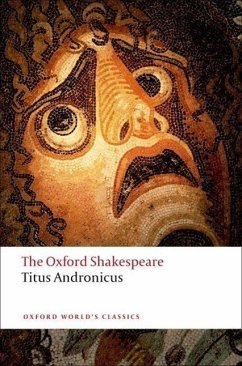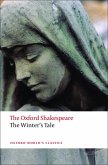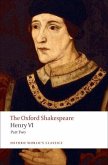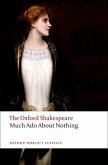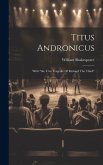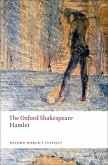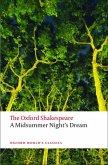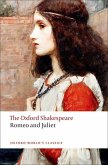Titus Andronicus was the young Shakespeare's audacious, sporadically brilliant experiment in sensational tragedy. Its horrors are notorious, but its powerful poetry of grief is the work of a true tragic poet.
Introducing this edition, E.M. Waith provides a fresh view of the play in its historical context as well as an original discussion of the famous `Peacham' drawing - the only surviving contemporary Shakespeare illustration. An illustrated account of performances, notably Peter Brook's production with Oliver as Titus, leads to an assessment of the play's qualities in the light of its critical reception. The eighteenth-century version of the play's probable source is given in one of the
appendices.
ABOUT THE SERIES: For over 100 years Oxford World's Classics has made available the widest range of literature from around the globe. Each affordable volume reflects Oxford's commitment to scholarship, providing the most accurate text plus a wealth of other valuable features, including expert introductions by leading authorities, helpful notes to clarify the text, up-to-date bibliographies for further study, and much more.
Hinweis: Dieser Artikel kann nur an eine deutsche Lieferadresse ausgeliefert werden.
Introducing this edition, E.M. Waith provides a fresh view of the play in its historical context as well as an original discussion of the famous `Peacham' drawing - the only surviving contemporary Shakespeare illustration. An illustrated account of performances, notably Peter Brook's production with Oliver as Titus, leads to an assessment of the play's qualities in the light of its critical reception. The eighteenth-century version of the play's probable source is given in one of the
appendices.
ABOUT THE SERIES: For over 100 years Oxford World's Classics has made available the widest range of literature from around the globe. Each affordable volume reflects Oxford's commitment to scholarship, providing the most accurate text plus a wealth of other valuable features, including expert introductions by leading authorities, helpful notes to clarify the text, up-to-date bibliographies for further study, and much more.
Hinweis: Dieser Artikel kann nur an eine deutsche Lieferadresse ausgeliefert werden.

